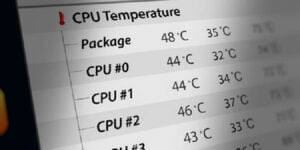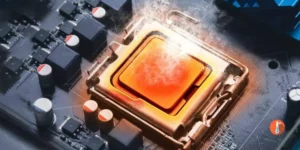Do you use your computer for everything from playing games to doing homework? If you’re using it for a lot of tasks at once, your computer may get too hot and slow down. This is called CPU overheating, and it can cause your computer to shut down unexpectedly.
When your computer gets too hot, it can cause a lot of problems. Your fans might start spinning loudly, your computer might slow down or shut off, and you could even lose important files.
But don’t panic! We can help you figure out what’s causing the problem, fix it, and make sure it doesn’t happen again. Just keep reading to learn more!
Common Reasons Why Your PC is Overheating
Have you ever wondered why your computer gets really hot sometimes and stops working? There are many reasons for this, including having too many applications or browser tabs running at once, or having defective fans.
If your computer is overheating, it may show signs like unresponsive applications, blocked air vents, outdated software, or even viruses.
If you want to know what an overheating computer looks like, there are some common symptoms. For example
- Your computer might have too many applications or browser tabs open
- The fans might not be working properly.
- You might also notice that your computer is slow or unresponsive
- There is dust buildup on the fans and vents.
So, it’s important to keep an eye out for these signs and take steps to prevent your computer from overheating.
How to Stop Your Computer From Overheating
An overheated CPU can lead to permanent damage, so it’s important to address it promptly. Look out for signs like the CPU fan running at full speed, a laggy or slow PC, and random shutdowns or restarts. Check the CPU temperature using third-party software and make sure it’s within normal range. You can also install fan controller software to monitor fan RPM.
Once you know the sign you can start to take precautionary measures.
1. Remove the Computer’s Cover
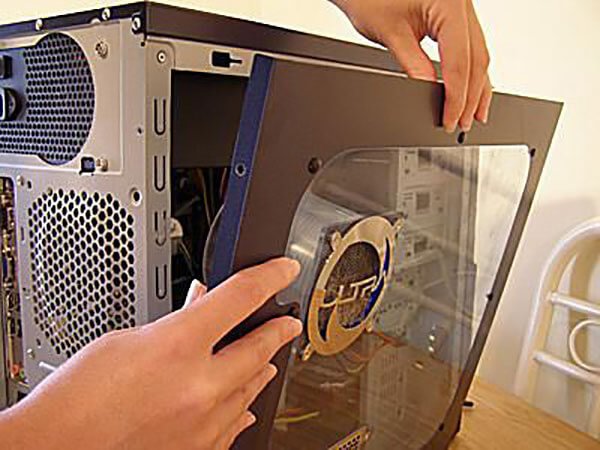
Removing the side panel of your computer is a simple but effective solution to fix CPU overheating. However, it’s important to switch off the PC before doing so to avoid any potential risks. This method can increase the airflow, allowing fresh air to pass through the PC components and decreasing the heat buildup. This should help cool down your CPU and prevent further overheating issues.
2. Make Sure Fans Are Working
Computers generate a lot of heat and fans help keep them cool. If your fan is consistently loud, it could be a sign of a problem. Here are a few ways to check if your fan is working properly:
- Listen for the fans turning on when you start up your computer.
- Place your hand near the fan grille to feel for any vibrations.
- Use a flashlight to check for fan movement through the grille.
If your fan continues to make noise, it may be time to upgrade your hardware with heat sinks or consider an external cooler to help manage temperatures.
3. Regularly Clean Your PC
Regularly cleaning your PC is crucial to prevent CPU overheating. Dust and debris accumulate in the PC case, obstructing the airflow and causing the computer to overheat.
To prevent this, purchase a can of compressed air and a mechanical oil dropper and carefully remove the dust from heat sinks and power supply fans. This simple method will help decrease the problem of CPU overheating in your computer.
4. Improve Airflow for Desktop & Laptop PCs
Proper airflow is crucial for keeping your computer or laptop from overheating, even if the fans are working correctly. To ensure unobstructed airflow, place your PC on a flat surface free from any objects. Avoid removing any parts of the casing, as this will alter internal pressure and invite dust and debris into your machine.
For laptops, maintaining airflow is even more critical. Avoid using your laptop on a blanket or sofa that can block the vents, and remove any protective cases that may be obstructing them. Also, try to avoid using your laptop in direct sunlight or hot environments. A cooling pad that blows cool air upwards can also help keep your machine well-ventilated.
5. Install a Liquid Cooling System or buy a laptop cooling pad
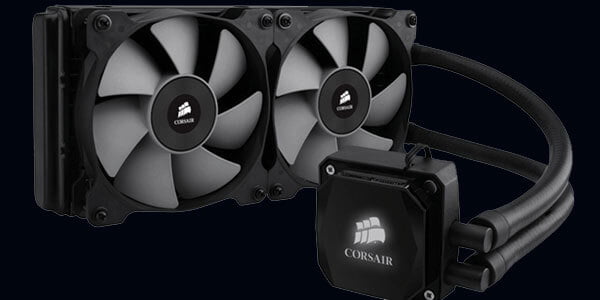
A liquid cooling system can be an effective way to prevent CPU overheating in desktop PC. For laptop users, investing in a cooling pad is a good idea. Compared to air cooling systems, liquid cooling is known to be more efficient.
However, it’s important to regularly check the system for leaks to avoid potential damage to your internal hardware. If you’re not familiar with the liquid cooling system, it’s best to have a professional install and maintain it to ensure its proper functioning.
6. Reapply Thermal Paste
Thermal paste is a heat-conductive material connecting the CPU or GPU with the metal heat sinks that help dissipate heat to keep your PC cool. Thermal paste can dry out over time, especially if you regularly push your PC beyond its natural limits.
Related: Best Thermal Paste for CPU and GPU – PC Thermal Compound
Thermal paste is located in the PC, so you’ll have to take your device apart to replace it. Unless you’re an expert, find an experienced technician to do this. Reapplying thermal paste can be an effective cooling method, especially with older PCs.
7. Temporarily close programs or shut them down
The simplest way to cool down your CPU is to close an app that is consuming high disk usage or shut down your PC momentarily. It will cool down your computer and will also clean up and speed up your PC.
8. Check for viruses and malware
Malware can wreak havoc on your PC, causing it to run high-impact processes that can quickly overheat your computer. To prevent this, use a reliable malware detection and removal tool to scan your system and remove any malicious software. This will not only protect your PC from overheating but also ensure the security and stability of your system.
9. Ensure Your PC’s Software Updated
It’s important to keep your computer software up to date because it helps it run better and can prevent it from getting too hot. When you update your computer, it can fix any problems and make it faster. You can use a tool that will automatically scan and fix any software that’s not working right, without you having to do anything.
How Does Your PC Lower Its Temperature?
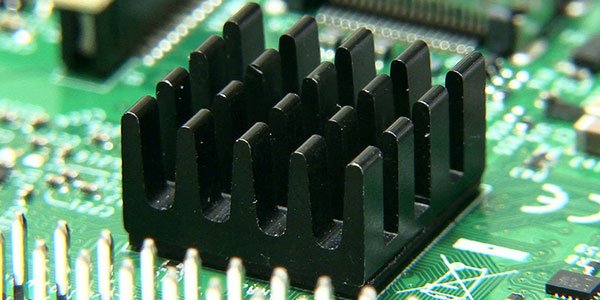
Computer components generate heat during normal use, that’s why several cooling systems are built into most PCs to mitigate CPU temperature. The airflow is one of the most common cooling systems.
All computer cases draw cool air from the outside and expel hot air that builds up in the case. In this way, the chances of CPU overheating are reduced.
Related: 11 Easy Ways To Prevent Computer Overheating & Keep Your PC Cool
But how the main airflow works in your PC, depends on the computer’s case and design. The ordinary computer case has a single PC fan with vents on both sides.
To counter CPU overheating on high-performance PCs, you’ll likely see more than one intake and exhaust fan designed with the purpose to deliver proper airflow all over the interior components.
CPU and GPU are the biggest heat generators and have additional cooling systems placed on them. Usually, a heat sink is attached to a CPU that’s designed to pull heat off the processor and an attached CPU fan throws that heat away from the CPU and heat sink.




